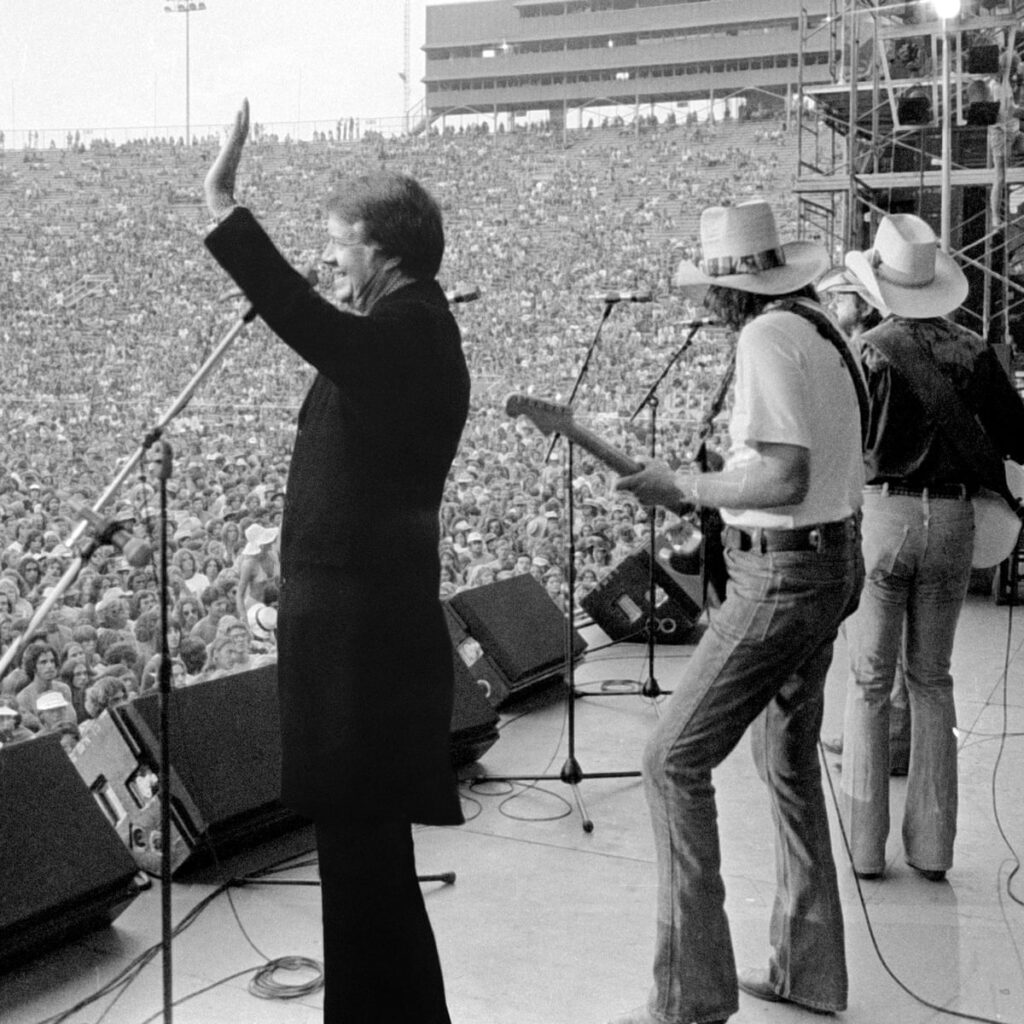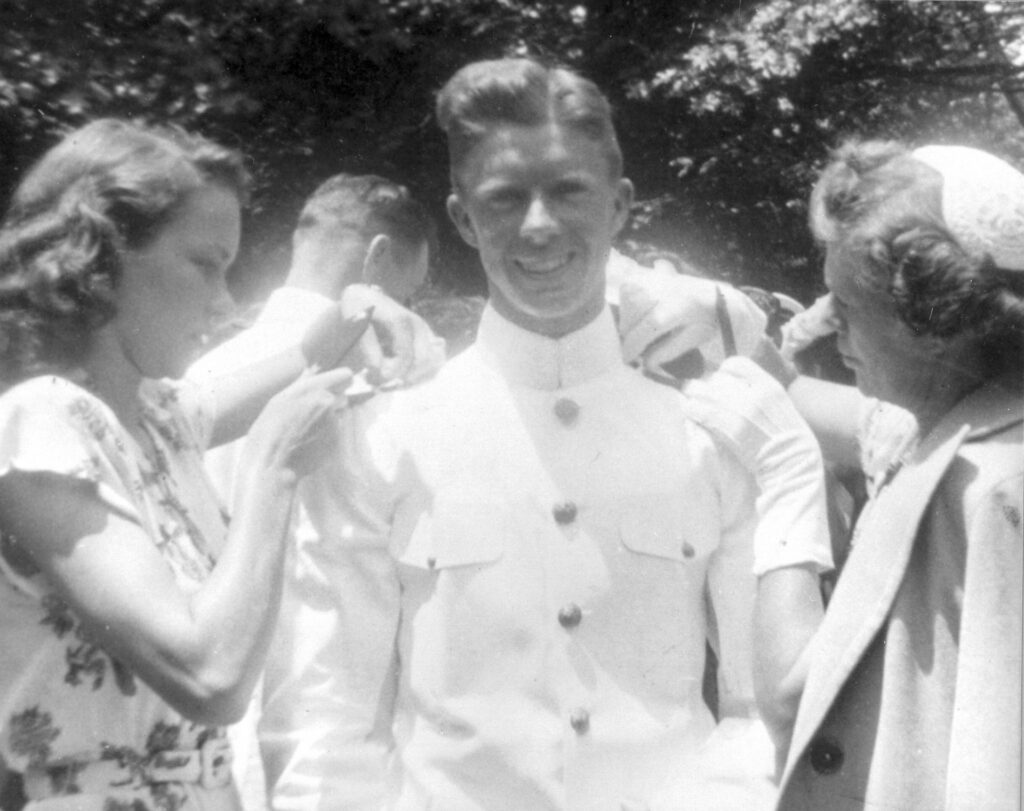There have been eleven men – eleven! – elected to the post of Commander-In-Chief during my lifetime. A lifetime in which I could only call two of them “mine.” James Earl Carter, Jr., was my first president. I was eight years old when he was sworn into office. My third grade class watched the inauguration on television; also a first for me.
Forty-seven years later, some may be mourning today the loss of an inspiring figure; others may be paying fortuitous lip service to the legacy of a principled man. Many, I believe, are also weeping for choices made; tearfully recalling a detour, a path-deviation, that might never return us to the road that Carter envisioned. With heads bowed, many today remember – admit to – a happier time… despite the myriad of American mistakes that the former Georgia governor just couldn’t correct in four short years.
America once turned its back to one of our most American of presidents; we collectively ignored our conscience, and have paid the price for it ever since.
In the winter of 1977, President Carter inherited one of the 20th century’s most wounded and troubled versions of America. A land of intentionally inferior cars and purposefully antiquated factories belching noxious chemicals into the air; a land of too many rivers choked with pollution. A country that had lost too many limbs and lives in a foreign land that few could find on a map. An inflation-wracked nation where privately held petroleum companies bought and sold oil as others traded currency; a racket that had come home to roost with singed feathers.
The United States once laughed at Jimmy Carter. We laughed at his gentle Georgia drawl, his hillbilly brother, the family’s peanut farm. The country couldn’t respect a leader who didn’t shake his fist or pound a lectern while speaking. And Carter spoke a lot; he didn’t tell tell America what it wanted to hear, though. Via television, he told America what it needed to hear: that its children would not have it as good as they did. That we needed to reduce pollution, or die. That we needed to explore alternative energy sources. That America needed to conserve, rather than destroy. Carter was as flawed as any man; he made mistakes.
One of them, perhaps, was thinking that he could lead this nation away from temptation.
We have marveled, since our self-betrayal, at Carter’s decency… but really, we have marveled that a person who once wielded so much power could be a fundamentally good man. He was devoted to one woman for more years than Donald Trump has been alive. We’ve admired Carter’s desire to be like his savior, to humbly serve as a part-time carpenter. We’ve heard his notions and pleas about peace, and nodded our collective heads. But too many of us – enough to build a voting bloc,and then some – have simultaneously found the former Navy submariner’s beliefs and determination to be quaint. Unrealistic.
Navy submariner. Determination. I didn’t know that my first president was a bonafide hero long before entering politics, until last year. I knew that he had served, of course, but I also didn’t realize that Carter was an absolute first-rate officer; the sort of man who could’ve been an admiral someday, if he could’ve stomached the… politics.
Would Carter have benefited from the internet and social media during his career, or would he have been hurt by them? Would “peanuts and Billy Beer” have been an even more overwhelming narrative, or would our (hopefully) better understanding of political and economic facts – plus his grassroots appeal – provided Carter with at least a more respected place in presidential history? Hard to determine. It’s also difficult for me to ascertain just why I am so compelled to explore and defend four years of Carter’s life, given his many extraordinary years before and after his time in the White House. My mother often says of Carter, “That man was too good to be president.” Perhaps I should leave it at that, but the years since his departure from Pennsylvania Avenue have been troubling, even traumatic, for too many Americans. Carter continued in one direction, while the country veered in another.
With the Allman Brothers’ full support, Carter had assumed leadership of a United States that had lost its way in so many realms… yet those who remember the 1970s can recall a time when more people knew their neighbors. A less-artificial atmosphere, to say the least. It was an increasingly laissez-faire social climate in which the legalization of marijuana and other reforms seemed to be just over the horizon. Some think of the four-year buffer between the Ford/Nixon years and the Reagan/Bush Eighties as an inevitable anomaly, or a necessary pause — but I’ve long thought of Carter’s term as a relatively peaceful, relatively idyllic time of opportunity. Opportunity to relax and breathe, opportunity to regroup and prepare for a better future.
Then, we collectively pressed the wrong button. Out of patience – and to be honest, in may cases out of desperation – we hit the switch marked “Lies and Veneer.” We changed channels; “The Waltons” bowed to “Dynasty,” “Good Times” ceded to “The Cosby Show.” Ronald Reagan, a master of demonization, could top any prosperity televangelist — and we’ve really never stopped tithing. It’s compulsory now.
In paying tribute to Carter’s legacy today, we also grieve for a legacy that was derailed – or, hopefully, one that is yet to be realized.
A world leader who dared to define “Christian” as “Christ-like,” has driven his last nail; a devoted husband and father – the pride of Plains, Georgia – has built his last house. My first, and best, president has left this earth. Jimmy Carter, America’s conscience, is gone at 100.





